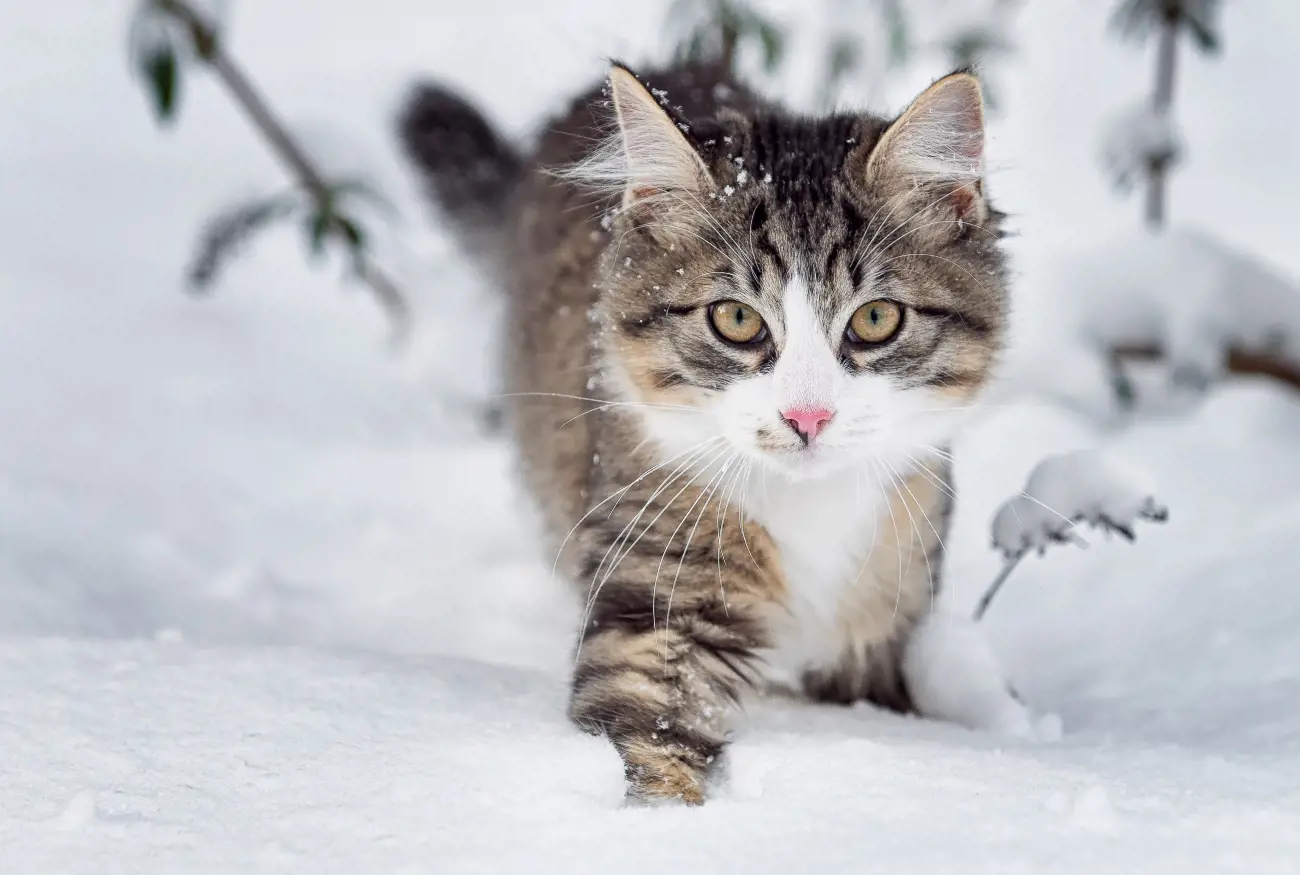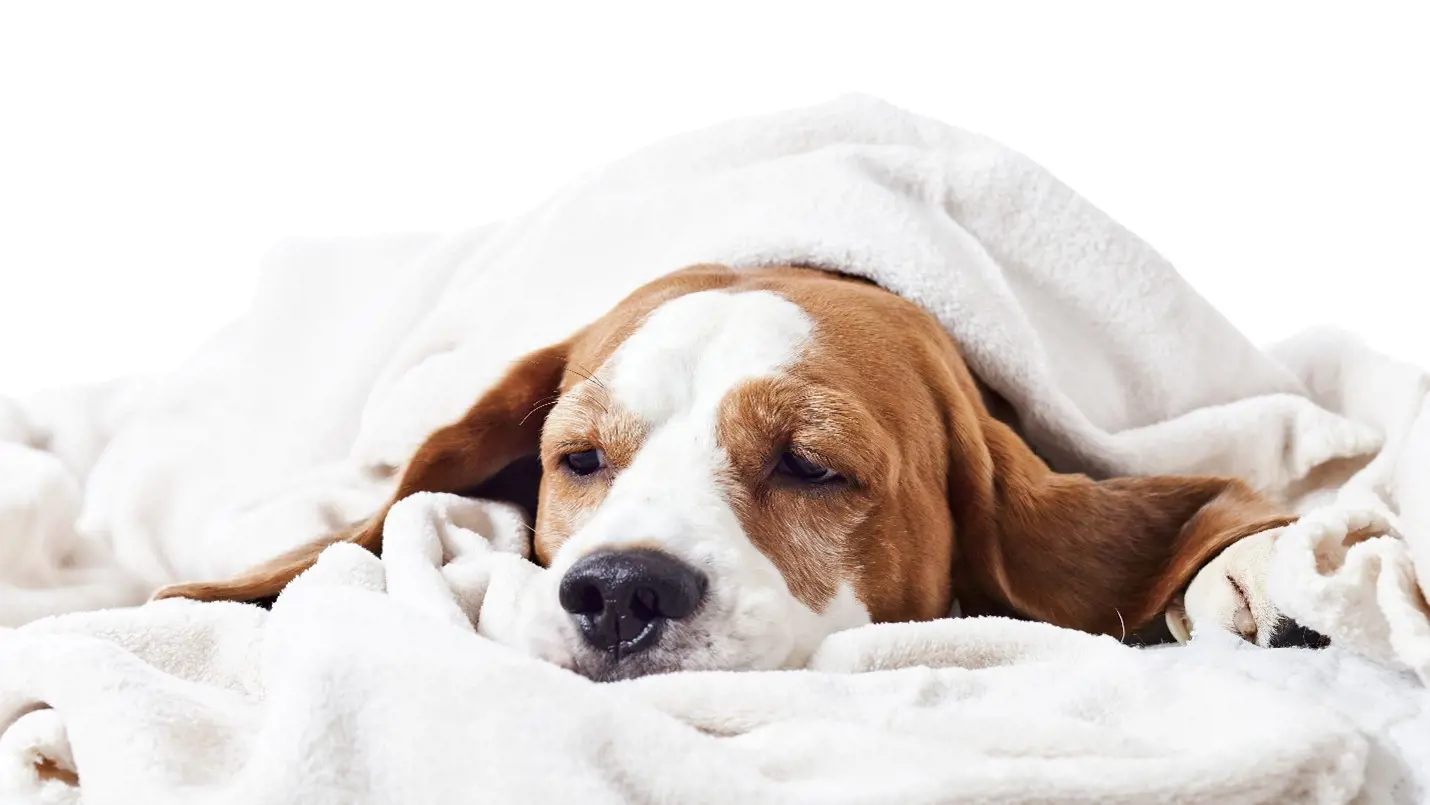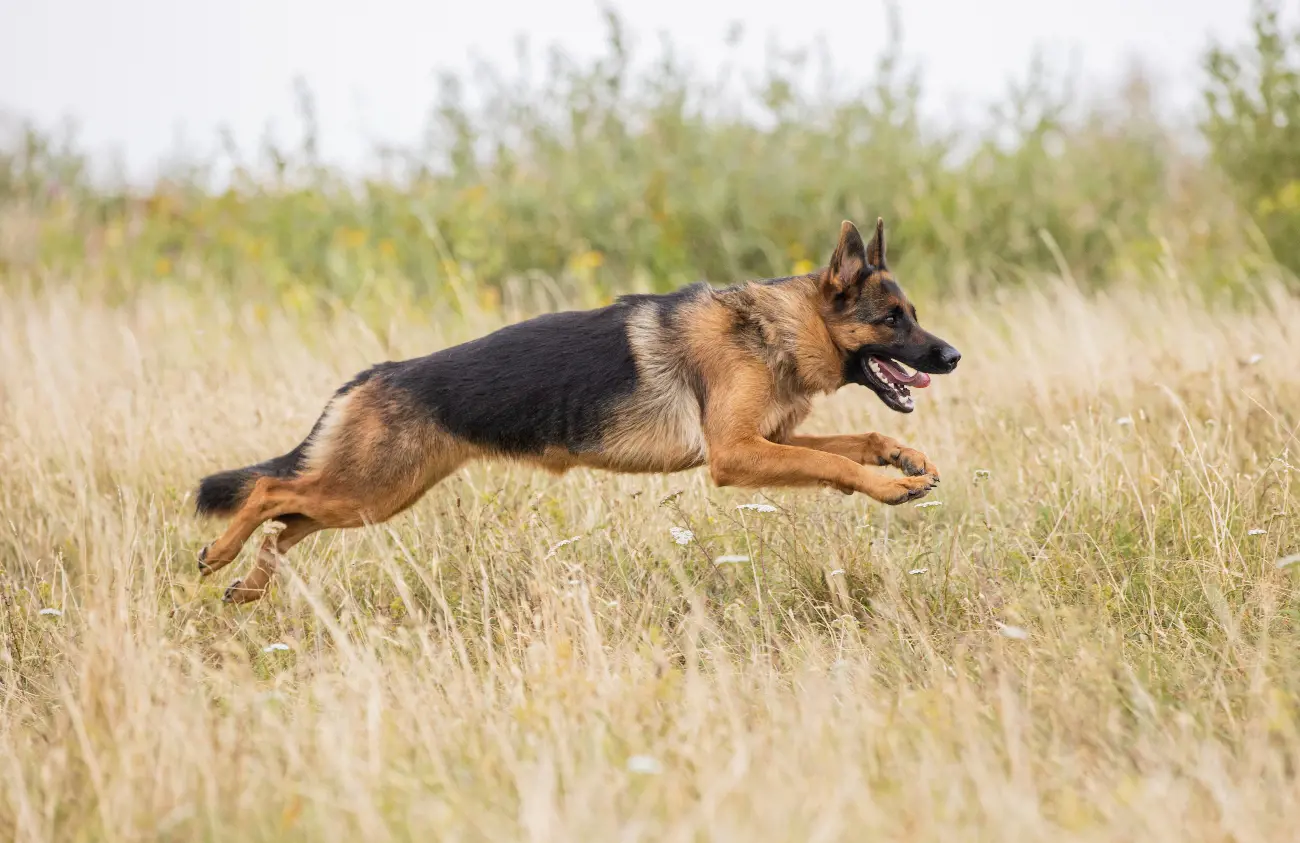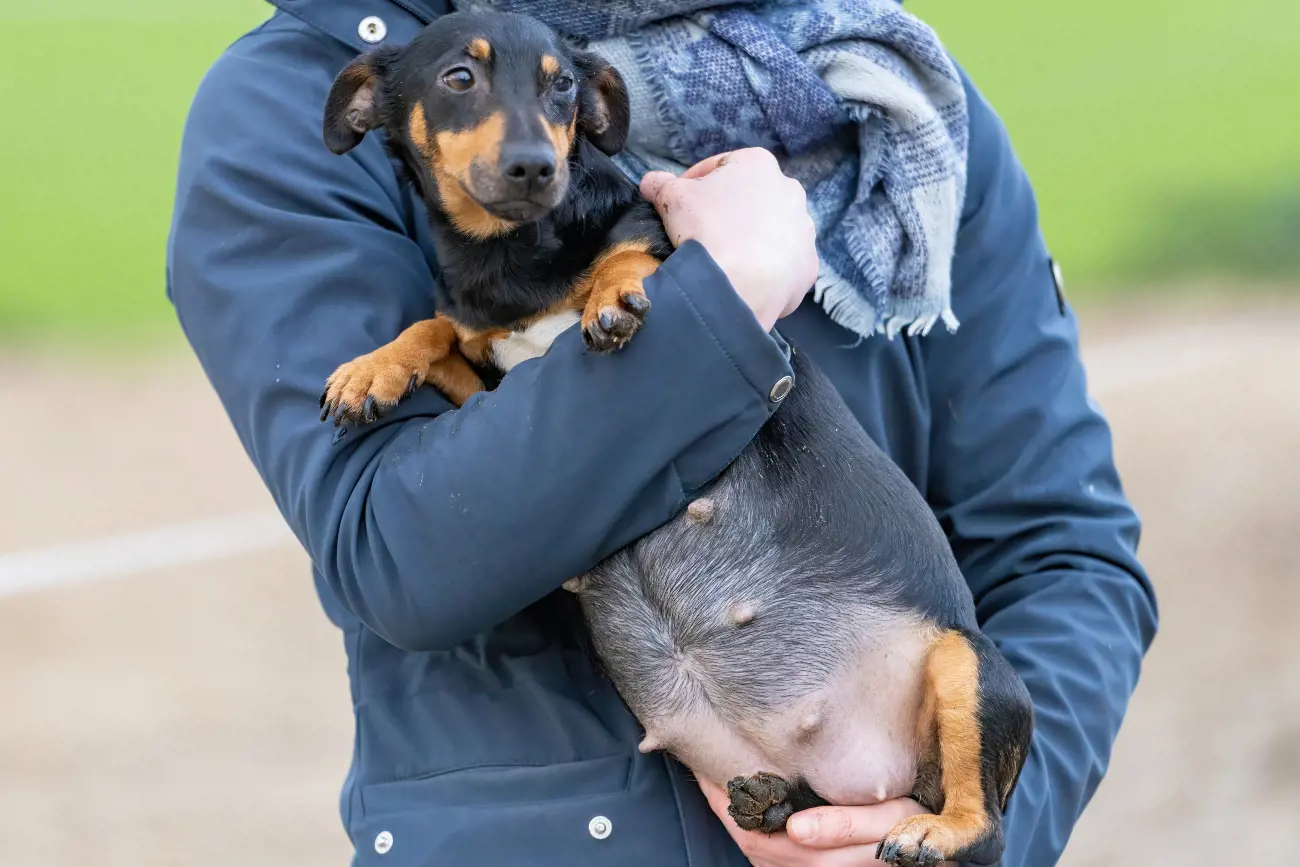Why is my dog jealous of my other dog?
18th August, 2023
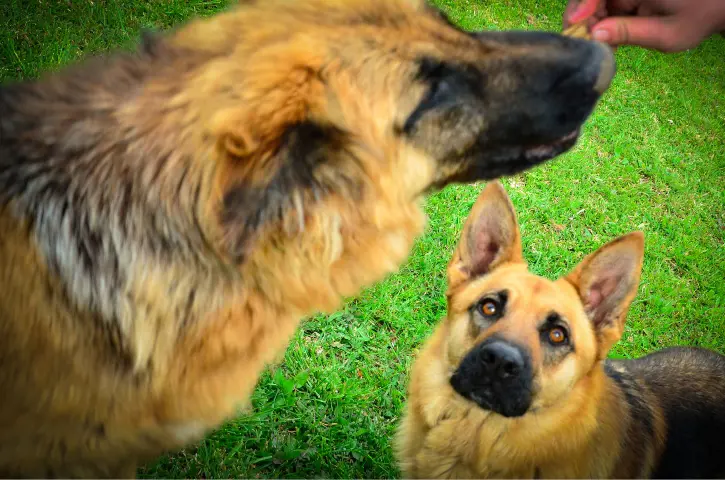
You might have noticed your dog acting possessive or aggressive towards your other dog, and you find yourself asking, "Why is my dog jealous of my other dog?" Jealousy in dogs is a common behavioural issue that many dog owners face.
In this article, we will delve into the concept of jealous dog behaviour, its common triggers, and how to address and manage it for a harmonious multi-dog household.
Understanding the reasons behind your dog's jealousy is essential to finding the best way to address the issue. By learning about the signs of jealous dogs and the steps you can take to prevent and manage it, you will be better equipped to deal with unwanted behaviour and ensure a balanced, peaceful, and happy environment for all your dogs.
Understanding the concept of jealousy in dogs
Dogs are social animals that have a pack mindset, which is why they often display signs of jealousy towards their favourite person. This natural instinct can be seen when a dog becomes possessive or aggressive towards someone who is receiving attention from another dog.
Understanding dog jealousy is important to ensure that your furry friend feels loved and secure in their home. It's important to remember that dogs are pack animals and thrive on social interaction.
When they feel left out or neglected, they may become jealous and try to assert their dominance. This behaviour can manifest in various ways, such as barking, growling, or even biting.
It's advised to address these issues promptly and train your dog to behave appropriately. If your dog has a favourite person in the household, it's crucial to ensure that they receive equal attention and affection from all members of the family.
This will help prevent feelings of jealousy and ensure that your dog feels loved and valued. You can also try providing your furry friend with interactive toys or puzzles to keep them occupied and stimulated. Understanding dog jealousy is vital for any pet owner.
By recognising the signs of jealousy and addressing them promptly, you can help with jealous feelings and ensure that your furry friend feels safe, secure, and loved.
Remember to treat all family members in your household equally and provide plenty of social interaction and mental stimulation for your four-legged friend.
How do I know if my dog is jealous of my other dog?
There are several signs that your dog is jealous of your other dog.
These include:
- Aggression: Your dog may growl, snap, or bite at your other dog when they are in close proximity, especially if they are receiving attention from you.
- Possessiveness: Your dog may guard their toys, food, or sleeping area from your other dog, even if they have never displayed this behaviour before.
- Demanding attention: Your dog may become clingy, whine, or bark excessively when you are giving attention to your other dog.
- Marking territory: Your dog may start marking their territory by urinating or defecating in the house, especially in areas where your other dog spends time.
- Interrupting interactions: Your dog may try to interrupt interactions between you and your other dog by pushing in between you or engaging in attention-seeking behaviours.
If you notice any of these signs, it is advised to address the issue as soon as possible to prevent further escalation of your dog's unwanted behaviours.
Common triggers of dog jealousy
Several factors can contribute to jealous behaviours between dogs in your household.
Some common triggers include:
- Changes in routine: Dogs thrive on routine and consistency, so any change in their daily schedule, such as a new work schedule or the arrival of a new family member, can trigger jealousy.
- Inconsistent attention: If you give more attention to one dog than the other, the dog receiving less attention may get jealous.
- Resource guarding: If one dog feels that their resources, such as food, toys, or sleeping space, are being threatened by the other dog, they may get jealous.
- New additions to the family: Bringing a new dog or puppy into the household can trigger jealousy in your existing dog, as they may be feeling jealous or replaced by the newcomer.
Understanding the triggers of a jealous dog can help you identify potential issues and take steps to prevent bad behaviour from developing in the first place.
The impact of jealousy on your dogs' relationship
Jealous behaviours can have a significant impact on the relationship between your dogs.
If left unaddressed, it can lead to chronic stress, anxiety, and even aggression. This can damage the bond between your dogs, making it difficult for them to coexist peacefully and enjoy each other's company.
In some cases, jealousy can also lead to physical harm if one dog displays aggressive behaviours towards the two other dogs.
It is essential to address and manage a jealous dog to ensure their well-being and maintain a balanced and harmonious household.
Steps to address and manage jealousy between dogs
There are several steps you can take to address and manage jealousy situations between your dogs and other pets:
- Establish a consistent routine: A consistent daily routine helps dogs feel secure and reduces the likelihood they’ll experience jealousy.
- Provide equal attention: Make sure you're spending time with each dog individually, giving them equal amounts of attention, praise, and affection.
- Teach and reinforce basic obedience training: Training your dogs to respond to basic commands, such as "sit," "stay," and "leave it," can help you maintain control and prevent jealousy-fuelled conflicts.
- Reward good behaviour: Encourage positive interactions between your dogs by rewarding them with treats, praise, or playtime when they behave well together.
- Separate your dogs during high-stress situations: If your dogs become jealous during specific situations, such as mealtimes or playtime, consider separating them temporarily to reduce tension.
By following these steps and meeting the physical and emotional needs of both pet parents and animal, you can effectively address and manage jealousy between your dogs, promoting a peaceful and harmonious environment.
Preventing jealousy from developing in the first place
While it is essential to address jealousy once it has developed, preventing it from occurring in the first place is even better.
Here are some tips for preventing jealousy between your pets:
- Start early: If you plan to bring a new dog or puppy into your household, begin by establishing a consistent routine and providing equal attention to your existing dog.
- Socialise your dogs: Expose your pets to various situations, people, and other animals to help them develop confidence and adaptability.
- Praise positive interactions: Encourage and reward positive interactions between your dogs to reinforce their bond and promote peaceful coexistence.
- Create a safe and secure environment: Provide separate spaces for your dogs to eat, sleep, and play to reduce competition and tension.
By taking these preventative measures, you can significantly reduce the likelihood of jealousy developing between your pets.
Jealousy between older dogs and new puppies
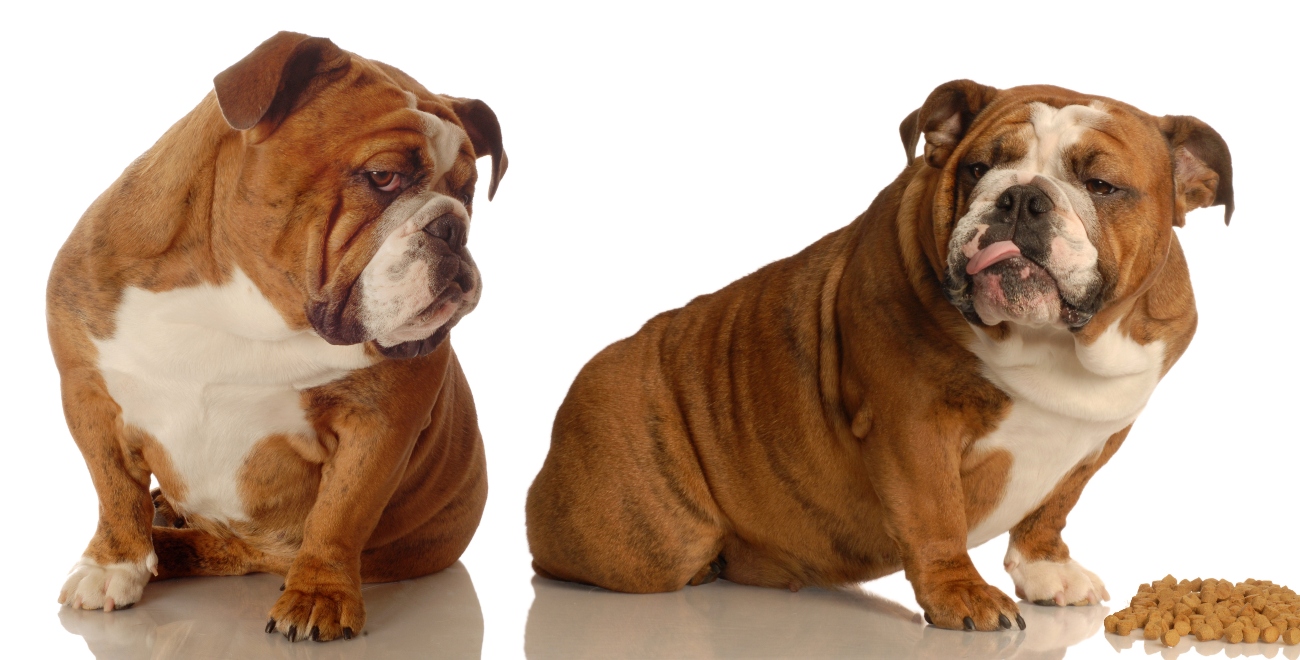
Introducing a new puppy to an older dog can be particularly challenging, as the older dog may feel threatened or replaced by the energetic newcomer.
To ease this transition, consider the following tips:
- Introduce them gradually: Allow your older dog and puppy to meet each other slowly and in a controlled environment, such as a neutral outdoor location.
- Give your older dog space: Provide your older dog with a separate area where they can retreat and have some alone time, away from the puppy.
- Monitor their interactions: Supervise their interactions, especially during playtime, to ensure that both pets are comfortable and safe.
By following these tips, you can help ease the transition with new pets and reduce jealousy between your older dog and new puppy. Read our other article for more tips on how to introduce puppies to older dogs.
Do dogs get jealous of people or babies?
When a new person or baby enters the household, a dog may display behaviours that suggest they are feeling left out or neglected by the pet parent. For example, a dog may become more vocal, clingy, or destructive. Some pets may even exhibit aggressive behaviour towards the new person or baby.
However, it's essential to note that not all dogs will react in the same way, and it largely depends on the dog's personality, breed, and previous experiences. It's crucial to provide your dog with proper training and socialisation to help them adjust to changes in the household.
Moreover, it's important to give your dog attention and affection even after the new person or baby arrives. It's also a good idea to introduce your dog to the new person or new baby gradually and under supervision to prevent any negative interactions.
By providing positive reinforcement and ensuring your dog feels loved and included, you can help reduce the likelihood of jealousy and promote a harmonious household.
Seeking professional help for a jealous dog
If you have tried the above steps and your dog's jealousy persists or worsens, it may be necessary to seek professional help.
A certified dog trainer or animal behaviourist can assess your dog's behaviour, identify the underlying causes of jealousy, and provide tailored solutions to address the issue.
The importance of patience and consistency in dealing with dog jealousy
Dealing with a jealous and possessive dog can be challenging, but it is essential to remain patient and consistent in your approach.
Addressing jealousy takes time and effort, and it may require adjustments to your daily routine and interactions with your pets.
By consistently reinforcing behaviours you want to see and addressing jealousy triggers, you can help your pets develop a strong, healthy bond and maintain a balanced, harmonious household.
Maintaining a balanced and harmonious multi-dog household
Understanding and addressing dog jealousy is crucial for the well-being of your dogs and the harmony of your household. By recognising the signs of jealousy, identifying its triggers, and taking steps to address and prevent it, you can ensure that your pets develop a strong, healthy bond and coexist peacefully.
Remember, patience and consistency are key when dealing with dog jealousy. If you need additional help or guidance, don't hesitate to seek professional assistance from a certified dog trainer or animal behaviourist.
To get a dog insurance quote for your furry friend, you can get a quote through our website by clicking here. If you would like to talk to one of our dog insurance team, you can get in touch with us on 0330 102 5748.
Helpful Pages
Recent Posts
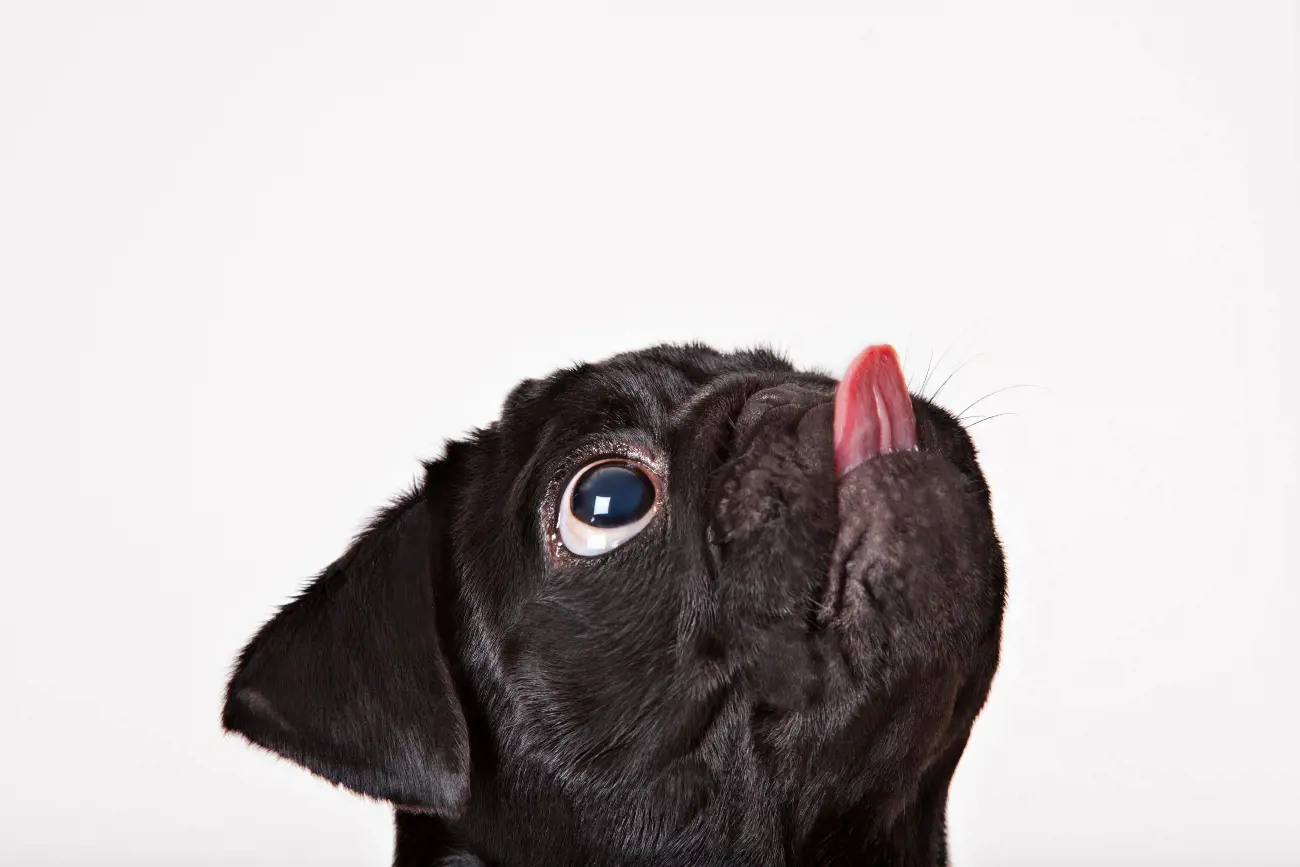
Why do Pugs lick the air?
02/10/24Pet Insurance Quote
- 98% claims paid *
- Claims paid directly to vets
- 24/7 vet video consultations
- Interest free monthly payments
